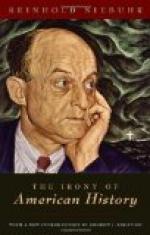|
This section contains 960 words (approx. 4 pages at 300 words per page) |

|
A Description of Irony and Its Three Types
Summary: An overview of the three different types of irony used in writing: verbal, situational, and dramatic. All three types of irony are vital in injecting sarcasm, guilty feelings, horror, tension, tragedy, and humor to situations.
John's friends and family are at his funeral service. They believe that John died in a car accident. When the service is about to end, John himself arrives at the service and asks, "Whose funeral service is this"" This situation is ironical in the fact that the unexpected occurs. Irony is a form of expression useful in concealing the true meaning, which is entirely opposite of what happens or what is said. Verbal, situational, and dramatic ironies are useful in creating sarcasm, guilty feelings, horror, tension, tragedies, and humorous situations.
Verbal irony occurs when a character says something that is opposite of what he or she really means. Verbal irony creates sarcasm, a guilty feeling on other characters, and it adds horror to the story. In the "Summer of the Beautiful White Horse" the farmer says, "I would swear it is my horse if I didn't know your...
|
This section contains 960 words (approx. 4 pages at 300 words per page) |

|


